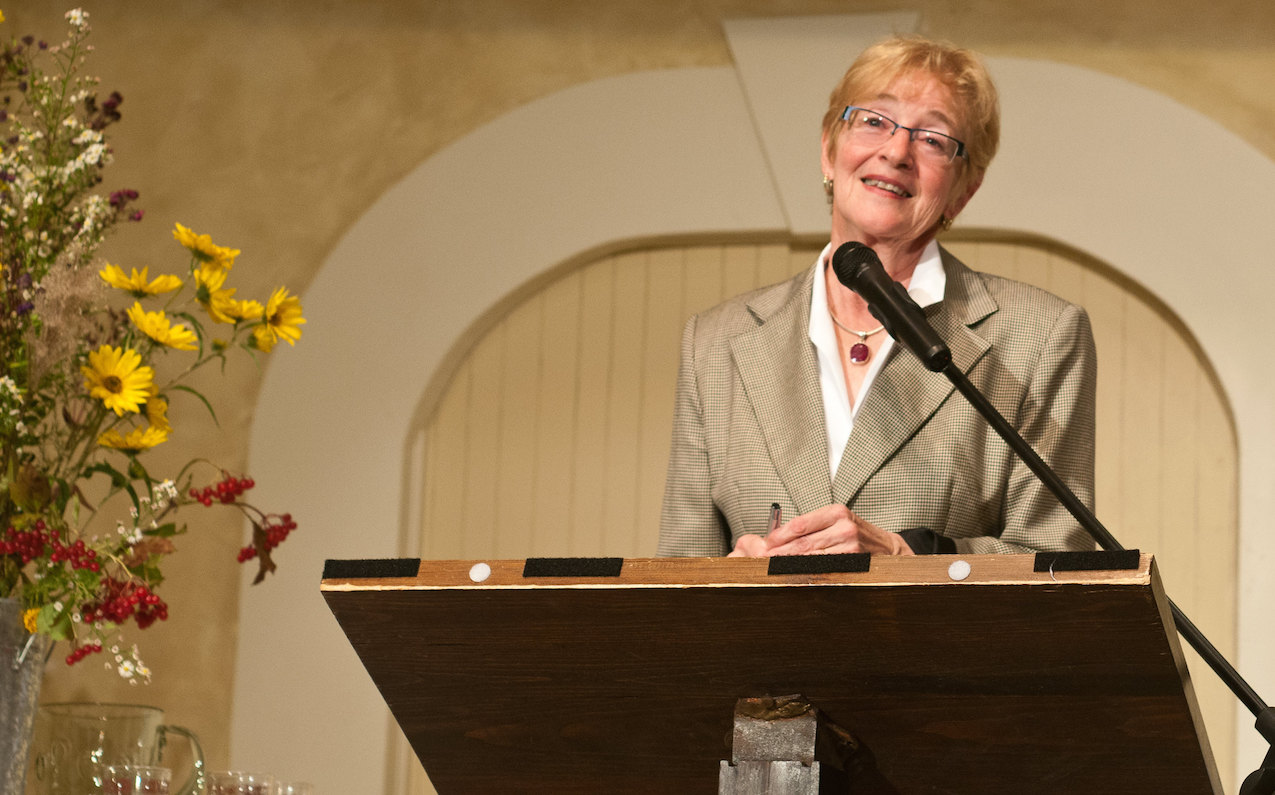On May 23, the seventh annual Tommy Douglas Institute at George Brown College welcomes activist, author and Council of Canadians National Chairperson Maude Barlow as its keynote speaker on Poverty, Populism, Planet: Envisioning Economic Justice.
Nearly two decades into the 21st century we are witness to a number of unsettling realities.
In an unprecedented display of wealth inequality, 26 of the world’s richest individuals own and control as much as the bottom 50 per cent of the global population. Billionaires grow their fortunes at an accumulated rate of $2.5 billion a day, while wealth and opportunity are siphoned from everywhere else; leading to growing rates of poverty, precarity and a raft of social insecurities for so many others (in employment, shelter, health care, education, and the list is increasing).
As populations in some parts of the world must either contend with the ravages of war and want or flee them altogether, reactionary politicians campaign on promises of stronger borders that keep the poor and desperate out, while shuttering empathy and compassion within.
The dizzying advance of media and technology is proving to be a double-edged sword. It grants us access to more information, convenience and technological wonders than at any other time in human history, while commodifying our information, distracting our attention, automating our jobs, and recruiting us into the machinery of the perfected surveillance state. And in a frankly weird postmodern turn, amid the cacophony of “alternative facts” and “fake news,” fact and fiction are equally weighted in the public post-truth arena. Argument is no longer won by the integrity of the point, but by the vulgarity and volume with which the point is made. Truth is no longer a matter of evidence, but of convenience — and whatever media conglomerates deem it to be.
All this is positioned against the backdrop of a planet whose ability to sustain life is daily sacrificed to an unforgiving economic ideology that promotes the cancerous mission of growth for growth’s sake, while sacrificing the health and dignity of everything around it. Our industriousness has ushered in the anthropocene and the sixth age of mass extinction. Yet, still we continue to frack earthquakes, drill collapse, clear-cut oxygen, melt icebergs, overflow oceans, salt the earth and dust the sky, while taking in reports of disappearing biodiversity, ruined earth systems and irreversible climate change with all the calm of a frog in slow-boiling water.
These are uncertain times and people are understandably confused, frightened, despondent and angry.
The problem is that this anger is being recycled back into the very systems that have created it by right-wing populists who seek to divert the energy of popular discontent into divisiveness — turning the working class against the underclass, poor citizens against poor immigrants, the marginalized of one orientation against the marginalized of another — while winning elections all over the world.
As decades of neoliberalism continue in accelerated deregulation and privatization of public spaces, services and resources, all of this is justified through the distorted narrative that social welfare, human rights and environmental justice are an unreasonable tax burden to the individual and a deficit to the state. But not all of us are buying it.
While rage at widening poverty and deepening insecurity is justified, the diversion of this rage toward socially and environmentally destructive agendas — by a regressive populism — is not.
As Maude Barlow reminds us:
It is very important that we clearly distinguish between those who reject the current economic and social system but who blame “the other,” who incite racism and division, who build walls to keep people out and who look for a “strongman” leader to protect them, and those of us whose very founding narrative is one of inclusion, diversity and justice for all.
From mass marches against fascism and racism and court challenges to unjust laws, to Extinction Rebellion, hacktivism and re-galvanized unions — in every corner of the world, communities large and small are mobilizing to reject the politics of fear and division.
As right-wing populists seek to divide us along lines of identity and ideology, progressive populists are uniting communities within shared stakes, social justice and the common good. They choose to wage war against poverty rather than the poor. They seek to build people-centred, life-affirming economies that connect the rights and dignity of all peoples to the rights and dignity of our planet. The idea being that if we are to survive this mess, it will only be through our solidarity and action.
Beginning with Barlow’s keynote on the interconnections between poverty and populism and its implications for the environment, participants will be invited to engage in roundtable discussions on “Migration” with Franciso Rico-Martinez (FCJ Refugee Centre), “Media” with rabble’s Victoria Fenner, “Labour” with Melisa Bayon (Ontario Federation of Labour), “Environment” with Dusha Sritharan (Toronto Climate Action Network), “Poverty/Inequality” with Anna Willats (Rise Up!), “Governance” with Kofi Hope (Wellesley Institute), and “Education” with Ricardo Tranjan (Canadian Centre for Policy Alternatives). The day will conclude with a discussion panel on “Envisioning A Peoples’ Centred Economy” with Nour Alideeb (CFS Ontario), Maude Barlow, John Clarke (Ontario Coalition Against Poverty), Kofi Hope, Vicky Mochama (journalist/commentator) and panel moderator Olivia Chow (former member of Parliament/community organizer).
To register, visit georgebrown.ca/TommyDouglasInstitute
Resh Budhu, Coordinator of the Tommy Douglas Institute, has worked in social justice issues of gender equality, anti-racism, education and the arts. Resh brings this commitment to her role as faculty and co-coordinator of the Community Worker Program at George Brown College. For over 40 years, the Community Worker Program has prepared students to become critical supporters and advocates of community empowerment, social justice and the building of a better world. Visit the Community Worker Program here.
Photo: Gary Lloyd-Rees/Flickr
Help make rabble sustainable. Please consider supporting our work with a monthly donation. Support rabble.ca today for as little as $1 per month!





